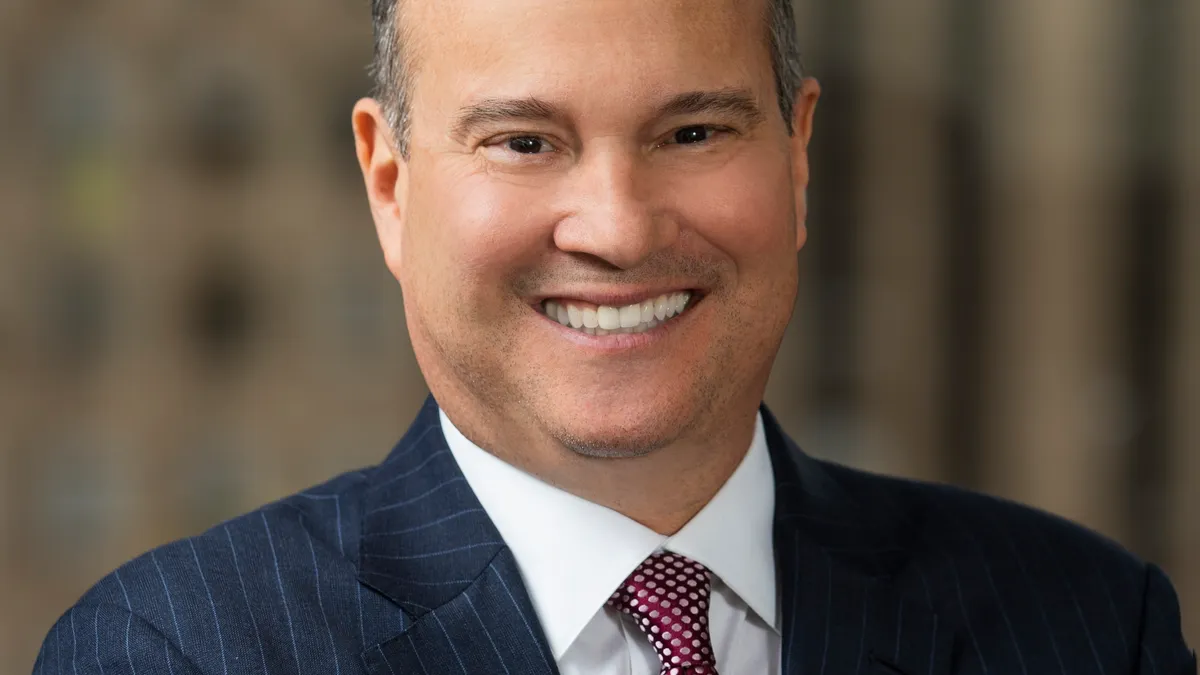Dive Brief:
- Joe Dominguez, CEO of Commonwealth Edison, appeared before Illinois regulators on Wednesday to discuss lobbying reform in the wake of the utility's bribery charge, and said that ratepayer funds were not involved in any alleged bribery activities.
- ComEd, an Exelon subsidiary, is cooperating with federal regulators on an ongoing bribery investigation involving Illinois House Speaker Michael Madigan, D. Several Republicans in the blue state are calling for Madigan's resignation.
- Republican groups also took aim at the chairman of the Illinois Corporation Commission, Carrie Zalewski, who was nominated for a public position by Madigan and whose family members allegedly received money from ComEd. During public comments on Wednesday's hearing, Jesus Solorio, Republican candidate for the U.S. House of Representatives, asked Zalewski to resign or to at least recuse herself from ComEd matters, although she disputed any wrongdoing.
Dive Insight:
Regulators were frustrated during the hearing by non-public aspects of the ongoing federal investigation. Chairman Zalewski said ComEd's alleged bribery practice will continue to be explored by the commission to ensure ratepayers were not footing the bill for illegal activity.
ComEd maintains that bribery-related activity, such as payments to "ghost subcontractors," were "never made part of the rate case," according to Veronica Gomez, ComEd general counsel.
Madigan, who holds one of the most powerful political positions in Illinois, is identified as "Public Official A" by federal investigators regarding ComEd's alleged corrupt bribery activity between 2011 and 2019. During the timeframe, the Illinois Congress moved a number of bills that impacted the utility, such as a smart grid bill that allowed ComEd and Ameren to make $3.2 billion in upgrades to Illinois' power grid.
The deferred prosecution agreement has made "no inference that the smart grid law was bad policy" or that it harmed customers, ComEd's Dominguez told the ICC.
ComEd was not convicted of criminal activity, signing instead a deferred prosecution agreement, which may be a newer practice among electric utilities but is a familiar one on Wall Street.
The utility is strengthening its compliance practices outside of the federal investigation, Gomez told Illinois regulators. Cost changes and percentages that will fall on ratepayers for the compliance function are not available, she added.
ICC commissioners insisted that ComEd's ratepayers should not fund any changes the utility makes in reaction to the deferred prosecution agreement.
ComEd is also paying the $200 million fine by borrowing money from Exelon, Dominguez said. The equity and cash position of ComEd won't be changed, Gomez said.
Republican State Sens. Don DeWitte and Chuck Weaver co-sponsored a Senate Resolution to the U.S. Congress to redistribute the $200 million fee to Illinois ratepayers. Meanwhile, a class-action lawsuit filed on Monday against ComEd seeks $150 million in refunds, to make up for rate increases and other benefits that ComEd received in the state due to its lobbying misconduct.
The Senate Republican Caucus also called on Madigan to step down. Madigan referred Zalewski to Gov. J.B. Pritzker for the ICC position.
According to local reporting, her father-in-law and former Chicago alderman, Michael Zalewski, received payment from ComEd as a "ghost subcontractor."
"The Chairman is not planning to recuse herself because she has no conflicts, real or perceived," ICC spokesperson Victoria Crawford said in an emailed statement, echoing Zalewski's comments during the hearing that questioning her role in the investigation was a "distraction."
However, ICC Commissioner Sadzi Martha Oliva acknowledged the potential impact of recent reports about Zalewski’s connections.
“I believe the allegations surrounding the bribery scheme may conflict with Chairman Zalewski’s ability to do her job effectively by adversely affecting the confidence of the public,” she said in the hearing.














